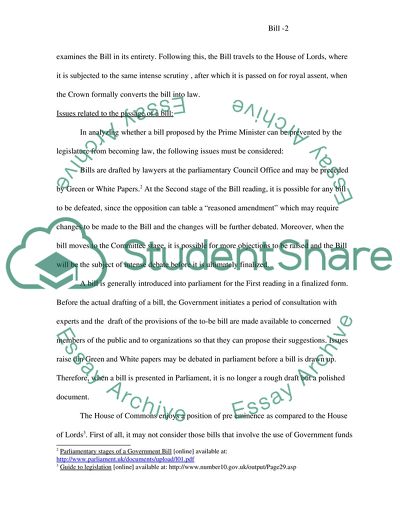Cite this document
(Stages of a Bill through Parliament Essay Example | Topics and Well Written Essays - 1000 words, n.d.)
Stages of a Bill through Parliament Essay Example | Topics and Well Written Essays - 1000 words. https://studentshare.org/law/1703659-can-the-legislature-prevent-a-bill-proposed-by-the-prime-minister-from-becoming-law
Stages of a Bill through Parliament Essay Example | Topics and Well Written Essays - 1000 words. https://studentshare.org/law/1703659-can-the-legislature-prevent-a-bill-proposed-by-the-prime-minister-from-becoming-law
(Stages of a Bill through Parliament Essay Example | Topics and Well Written Essays - 1000 Words)
Stages of a Bill through Parliament Essay Example | Topics and Well Written Essays - 1000 Words. https://studentshare.org/law/1703659-can-the-legislature-prevent-a-bill-proposed-by-the-prime-minister-from-becoming-law.
Stages of a Bill through Parliament Essay Example | Topics and Well Written Essays - 1000 Words. https://studentshare.org/law/1703659-can-the-legislature-prevent-a-bill-proposed-by-the-prime-minister-from-becoming-law.
“Stages of a Bill through Parliament Essay Example | Topics and Well Written Essays - 1000 Words”. https://studentshare.org/law/1703659-can-the-legislature-prevent-a-bill-proposed-by-the-prime-minister-from-becoming-law.


